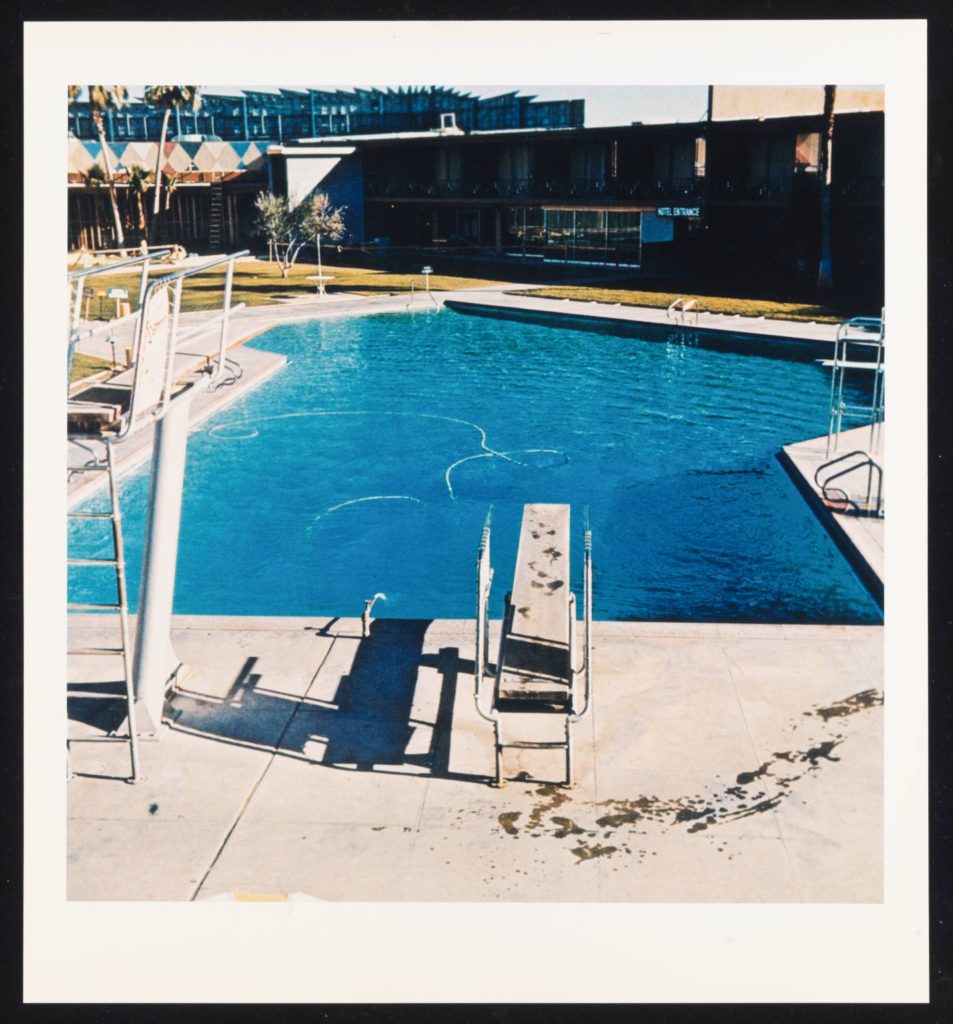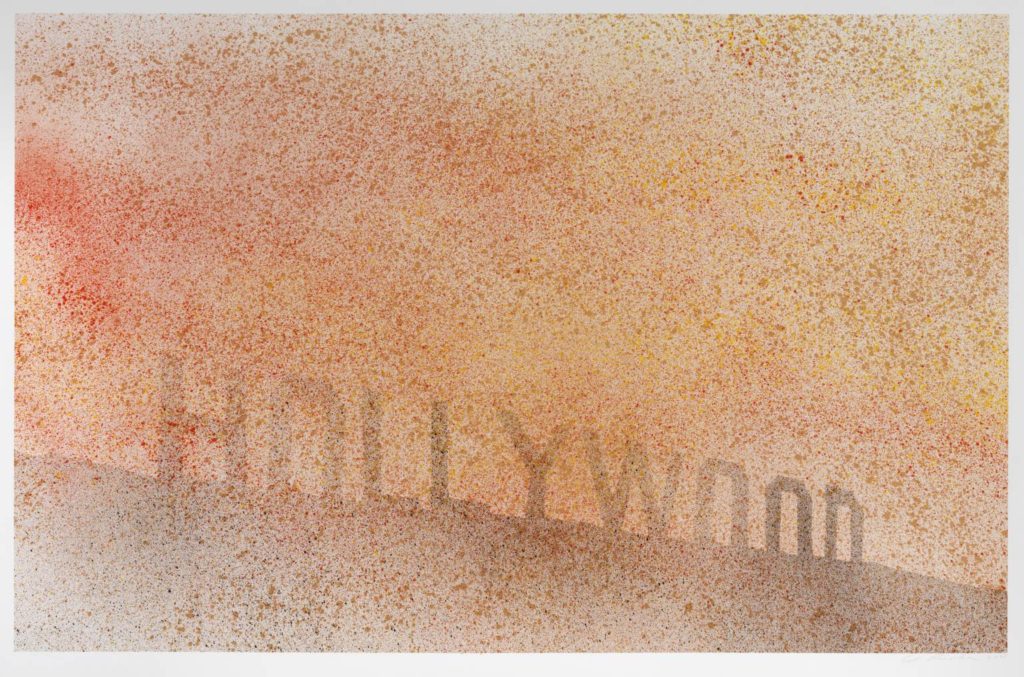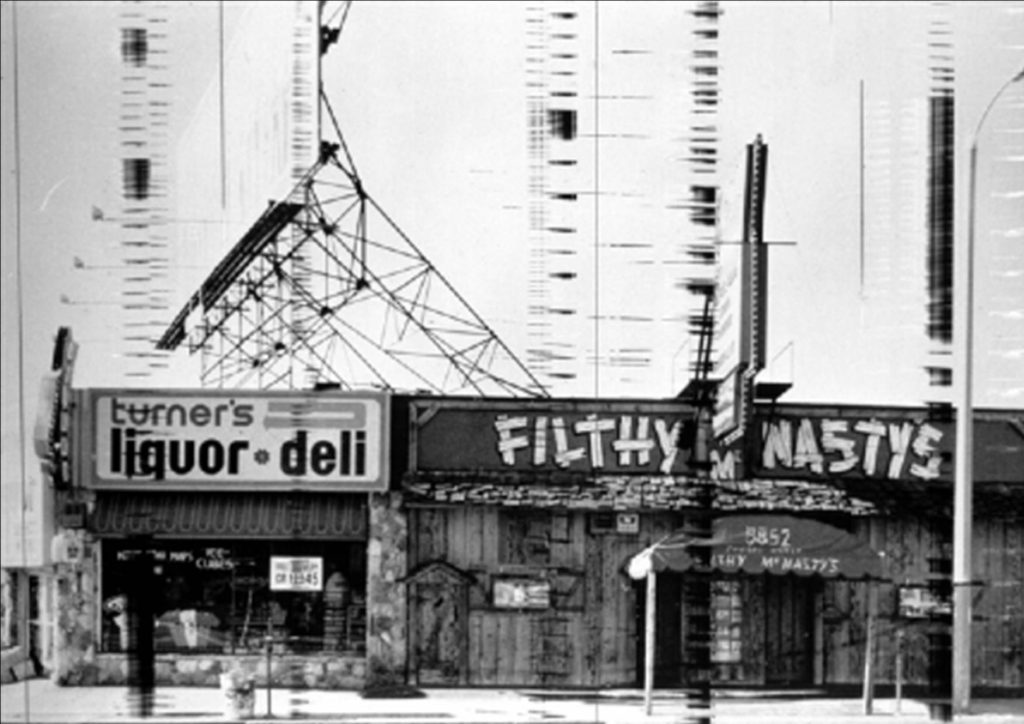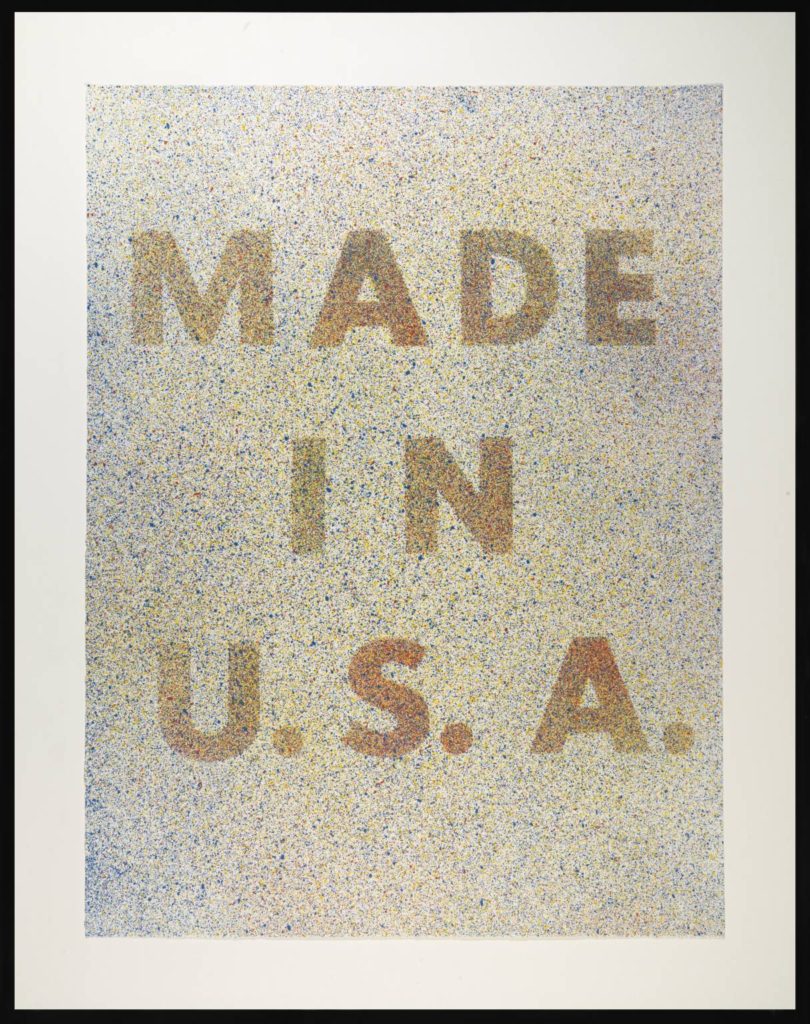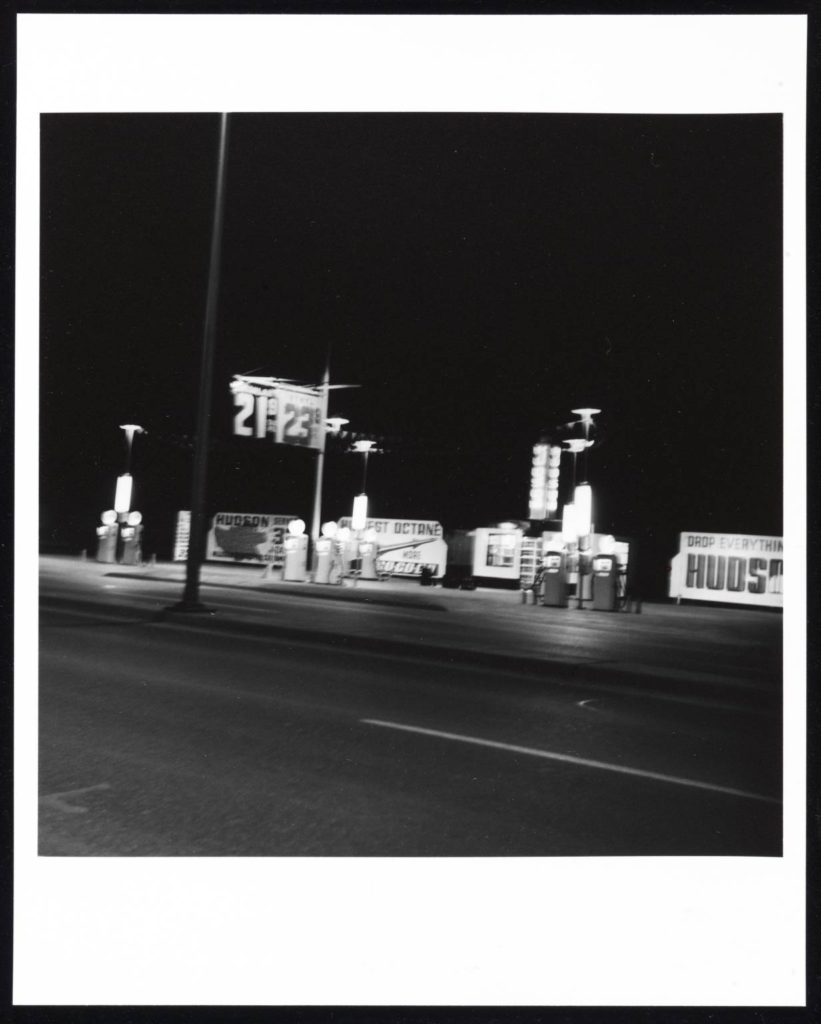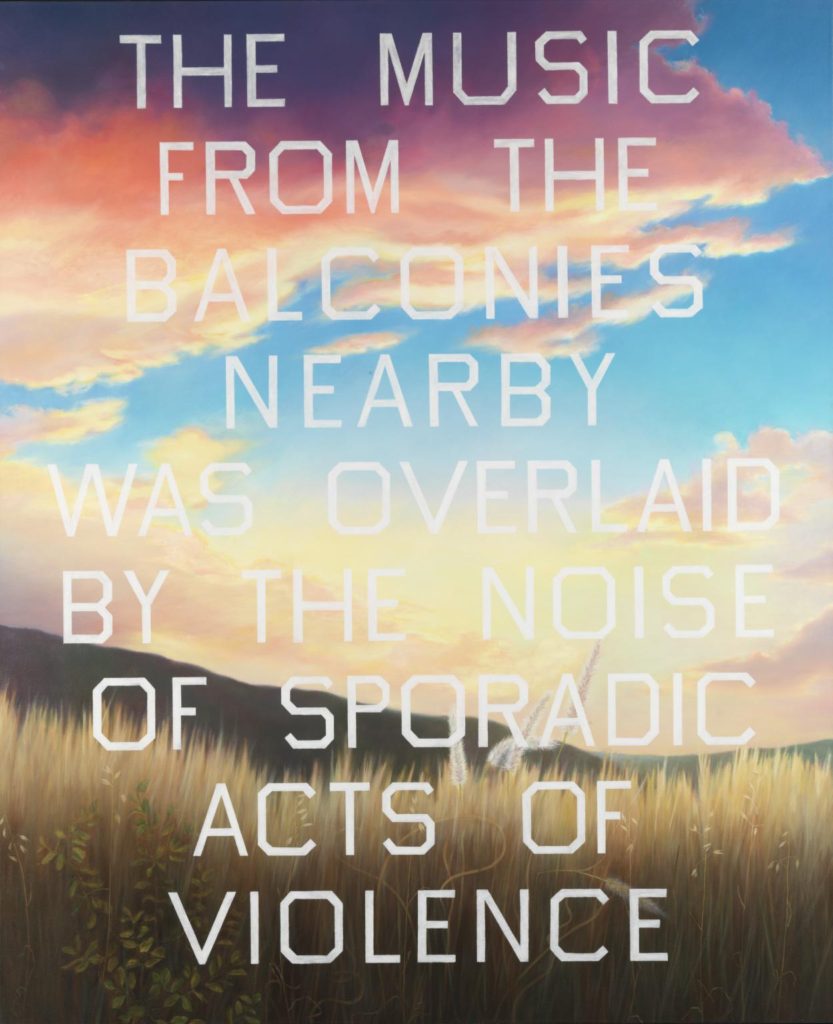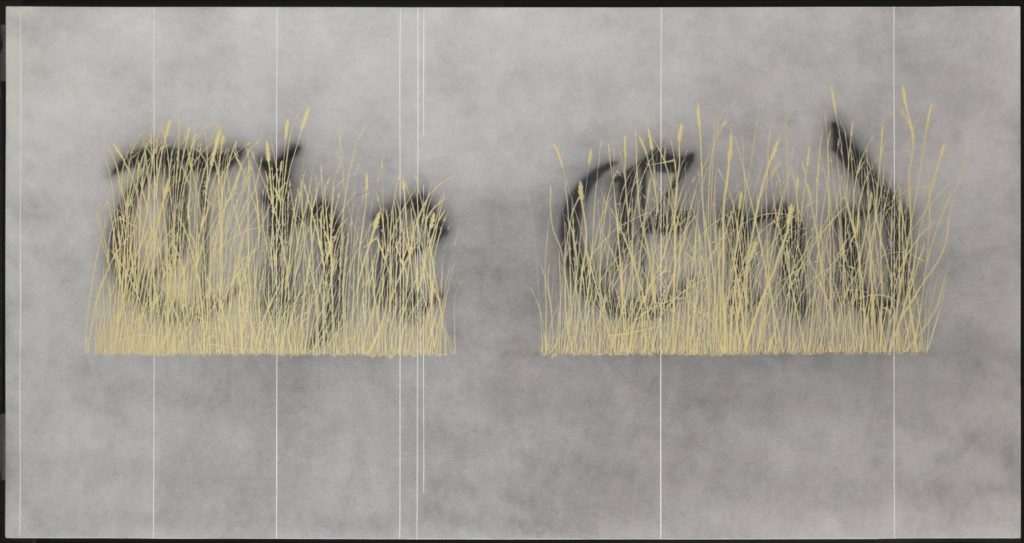Music from the Balconies
Ed Ruscha at SNGMA, Edinburgh

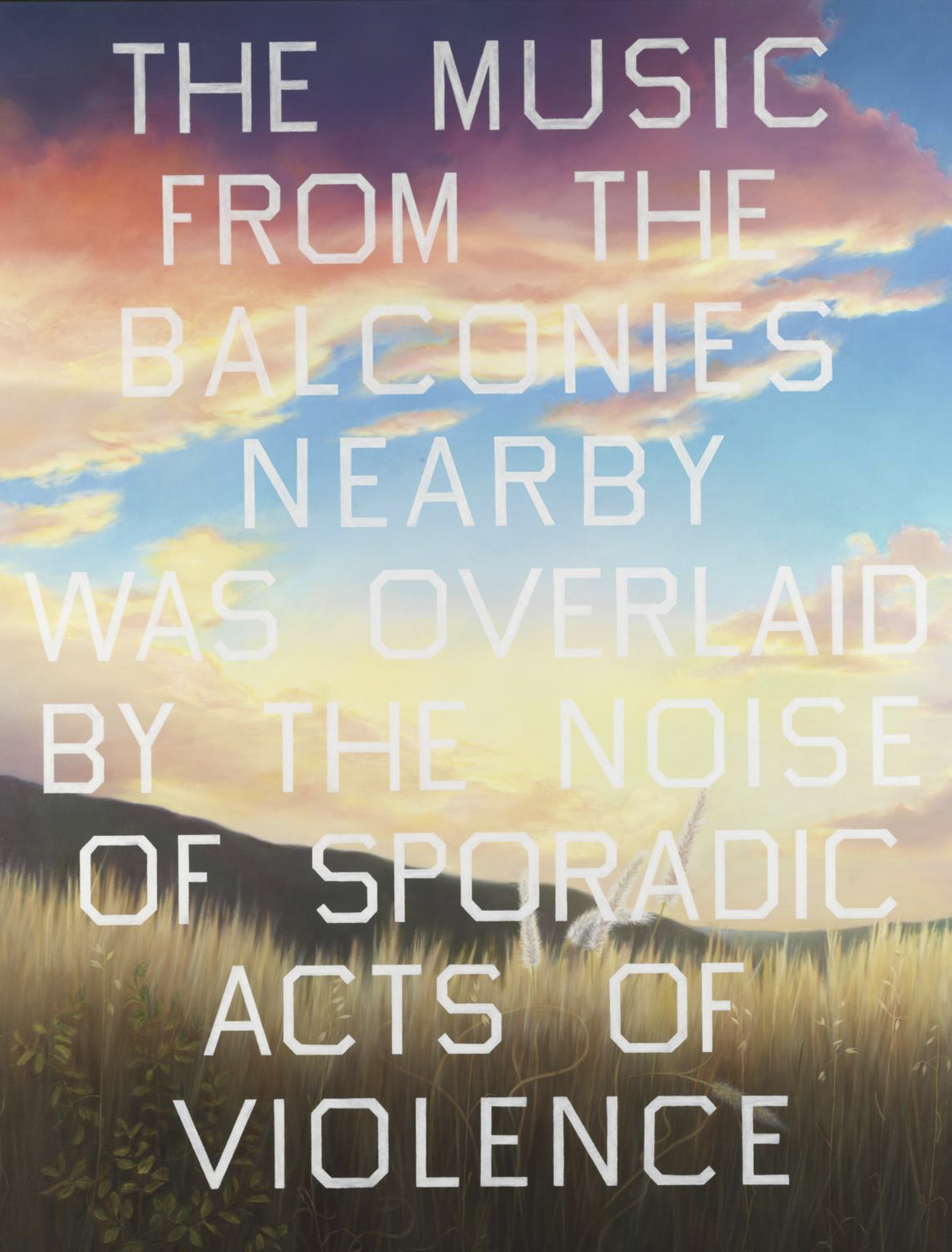
Los Angeles is a place, a phrase, a culture, and a myriad of cliches and histories. It’s not a surprise that West Coast artists are fascinated by the silver screen, car culture, or the dualities of violence and glamour that could be found there. Ed Ruscha, who has long resided in California, has turned Los Angeles into his métier. However, he is not just a Pop artist; the banal images and texts used by the artist have a dreamlike and conceptual bent, too. Ruscha is already a living figure of twentieth-century art history, but his latest exhibition Music from the Balconies: Ed Ruscha and Los Angeles at the Scottish National Gallery of Modern Art serves as a succinct look at Ruscha’s unique relationship to his city.
The 1984 Ruscha painting The Music from the Balconies serves as an inspiration for this entire exhibition, and one quickly realizes why. Appropriated from J.G. Ballard’s iconic dystopian novel High-Rise, a beautiful (and utterly platonic and boring) landscape of reeds, mountains, and a sunset is covered by a white, harsh, sans-serif type. Lifted from High-Rise, the text reads “THE MUSIC FROM THE BALCONIES NEARBY WAS OVERLAID BY NOISES OF SPORADIC ACTS OF VIOLENCE.” It’s a jarring sentence, and its appearance over the painting utterly destroys any type of traditional beauty. This sort of postcard-like imagery juxtaposed against evocations of brutality or weirdness is a calling card for Ruscha.
There is something eerie in everything that Ruscha does, even though he utilizes subject matter usually associated with wholesome Americana. An iconic body of work on view at this exhibition is a the 1997 printing of the Pool Series portfolio taken mostly from his original 1968 book Nine Swimming Pools and a Broken Glass. These color photographs of pools in suburban backyards look like any other bland Kodak image, but certain elements disturb the serenity. A viewer can see a single set of wet foot prints along the perimeter of the pool, a distinct rippling of water although no one is occupying the pool, or the original image that comes before the swimming pool photos: a picture of broken glass.
This exhibition isn’t groundbreaking: Ruscha has had huge retrospectives and surveys across the globe, but that doesn’t matter either. This is an essential primer in Ruscha’s worldview. For all of the sex and prosperity and glamorous consumerism that represents LA, it all seems to be a big ruse. There is a sense of violence and psychological disturbance throughout all of these very slick works: disfigured landscapes, disintegrating texts and slogans, and empty pools or gas stations. After all, Los Angeles is nothing but a mirage. The beauty of Hollywood covers up various crises, like racial violence, deadly religious cults, homelessness, government corruption, the pernicious casting couch, or toxic environmental pollution. It’s this myth of the idyllic West Coast lifestyle that Ruscha always seems to be poking through, and what you discover is that it isn’t always so pretty in Tinseltown.
